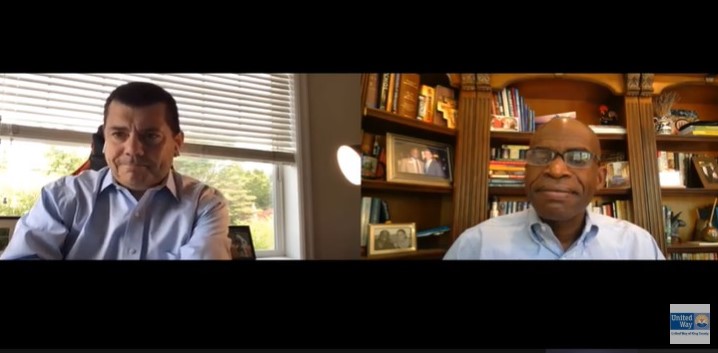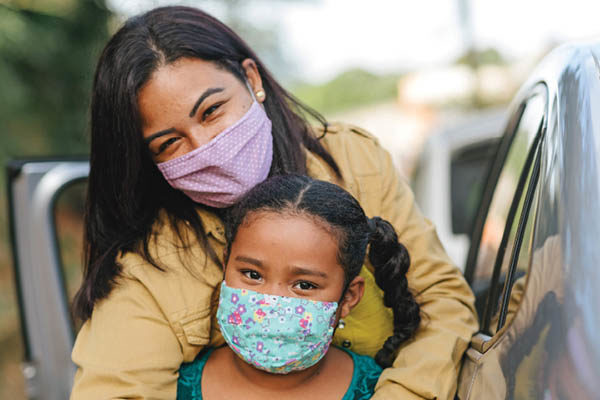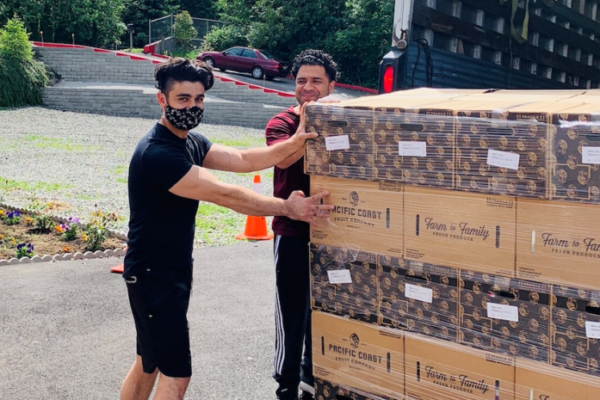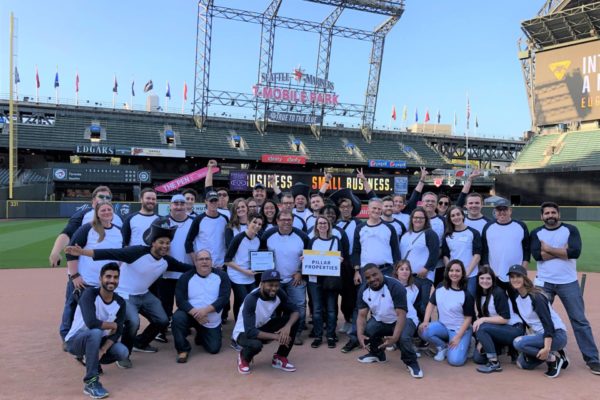Seattle Mariners Step Up for the Community During COVID-19 Pandemic
The economic devastation caused by the coronavirus pandemic “has really shined a light on the existing inequities” in our community, said Fred Rivera, the Seattle Mariners general counsel and board chair at United Way of King County, during a COVID-19 livestream update from United Way.
The livestream was part of a weekly series hosted by United Way. Rivera joined Gordon McHenry, Jr., president and CEO of United Way of King County, who also talked about the racial disparities that have become even more apparent with the crisis.
“We’re very sensitive to the fact that these challenges don’t fall equally on our community,” McHenry said. “There are members of racial and ethnic communities, communities of color, immigrants, refugees, where the challenges of COVID have fallen more heavily on them.”
“It has a geographical component as well,” said Rivera. “If you look at south King County, there is a significant immigrant population that is suffering more than some other communities.”
Rivera said those who were already suffering from the inequities are suffering even more now, but the solutions are not easy or quick.
“That is going to continue for some time. This is not a situation today that we can address tomorrow or next month,” added Rivera. “This is a long term issue that we will need to address through systemic changes.”
The Seattle Mariners have been a steadfast United Way of King County partner for years. Under Rivera, the Mariners seeded Home Base, United Way’s eviction prevention program that has kept nearly 1,000 households in their homes since it launched in April 2019. Because of the COVID-19 crisis, Home Base evolved to provide rental assistance to about 2,000 families who have lost income due to the pandemic.
More than 6,800 renters filed for assistance, highlighting the urgent need for more funds. Almost three-quarters of applicants were people of color.
“Our ability to serve is constrained by the amount of money we’ve been able to raise,” said McHenry.
McHenry said the rental assistance program has helped people who have fallen through the cracks, such as undocumented immigrants, who have no access to some public benefits.
Addressing Food Insecurity
McHenry said that many people in the community need more than just help with rent—keeping themselves and their families fed is just as important.
He added that United Way has partnerships with organizations that seek to alleviate hunger—non-profits such as FareStart, YMCA and others—by preparing pre-packaged food and delivering it to the communities that need it most.
“All of us are very attentive to the [racial] inequities,” McHenry stated. “We want to make sure services get to those who are most vulnerable.”
McHenry said he is concerned with how long this period of duress and hardship will go on. “It’s going to be a much longer period of stress and duress than any of us could have imagined,” he said.
The livestream was sponsored by WaFd Bank.






Comments